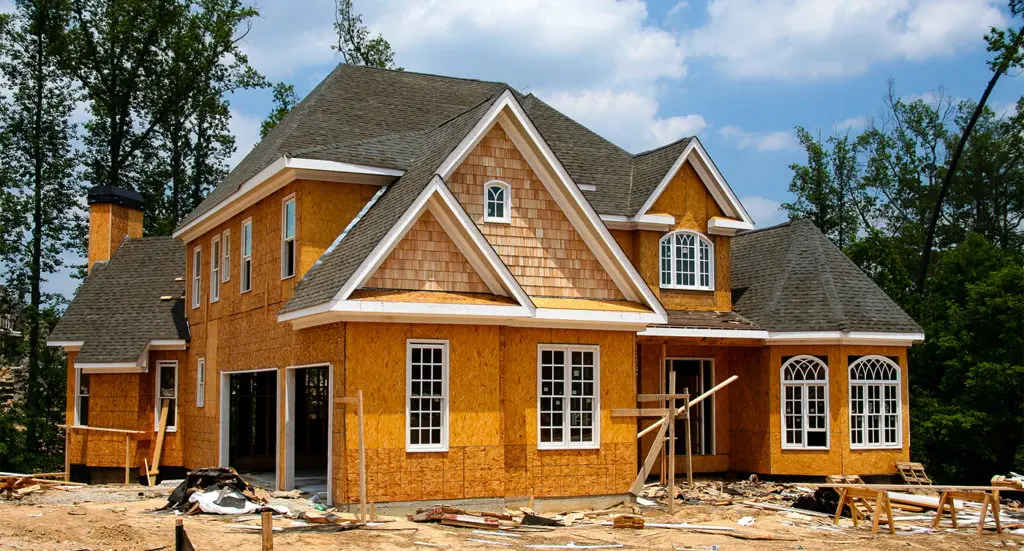ERI – The New REScheck?
- Last Updated Oct. 30, 2023
- 6 Minute Read
Originally Published August 20, 2018

Originally Published August 20, 2018

North Carolina rolled out our new residential code on January 1st, 2019 (find a full breakdown of updates in this blog). One of the more noteworthy changes is the switch to the Energy Rating Index (ERI). Check out our quick guide to Energy Code Compliance Pathways here →
Let’s start with a look back to the REScheck and how the new ERI option will create opportunity.
A REScheck is a DOE software application developed to simplify and clarify energy code compliance with the state energy code. REScheck was used to assist builders, designers, and contractors in demonstrating energy code compliance, by creating compliance reports for code officials based on project inputs.
Building code officials as well as planning and permit departments often requested REScheck compliance reports to confirm that a project was designed to meet energy code requirements, specifically with regards to the building envelope (insulation, windows, doors and foundations). This became more common with local planning departments as part of the residential builder permit application package, but was only needed under certain circumstances.
RESchecks were needed for any project that was not prescriptively meeting the insulation R value and/or window U value requirements in code. If the walls, ceiling, foundation, and windows were all spec’d to code, and that was indicated in the plan details, then it was not necessary to provide a REScheck. If open-cell spray foam insulation was used, particularly for insulating the roof deck, or another insulation product or window that did not prescriptively meet code R value requirements, a REScheck was necessary to confirm the project’s energy code compliance.
Although REScheck has been beneficial, the new ERI has several advantages to be excited for. Here’s a look at how they compare.
The Energy Rating Index is new to the 2018 Building code and will allow builders to use a HERS Index Score to demonstrate a home’s compliance with the residential building code. Outlined in the 2018 code are climate zone specific HERS benchmarks. So long as you meet or exceed these benchmark scores, you’ll be allowed to use trade-offs from prescriptive code.
| Climate Zone | Jan 1, 2019 - Dec 31, 2022 | Jan 1, 2023 and Forward |
|---|---|---|
| Zone 3 | 65 | 61 |
| Zone 4 | 67 | 63 |
| Zone 5 | 67 | 63 |
| Climate Zone | Jan 1, 2019 - Dec 31, 2022 | Jan 1, 2023 and Forward |
|---|---|---|
| Zone 3 | 51 | 47 |
| Zone 4 | 54 | 50 |
| Zone 5 | 55 | 51 |
The REScheck was only able to evaluate the envelope of the home (think insulation, windows, etc). The new ERI option is a whole house performance assessment that includes mechanical equipment and performance testing in addition to the envelope.
All homes permitted on or after July 1st, 2018 are eligible to use the new ERI option ahead of the official launch of our new code on January 1st, 2019.
The REScheck will remain an acceptable performance pathway although on January 1st, 2019 you’ll be benchmarked against the 2015 IECC making compliance more stringent than in the past.
We suspect that builders will find the new ERI option to be an easier and more cost effective alternative to the REScheck moving forward.
If you’re currently using RESchecks to comply with the Residential Energy Code, contact us to learn more about how the ERI can streamline your processes and potentially save you money!
Schedule a meeting to review your home performance goals and challenges.
North Carolina’s solar power and building performance expert. Founded in 2001, we’ve worked for 20+ years to improve the way people make and use energy.
© 2023 Southern Energy Management, Inc.